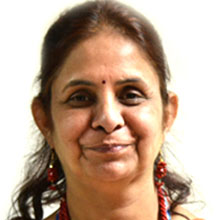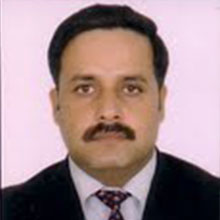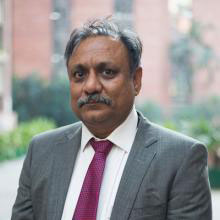Art in the Time of Corona: ICCR Global Painting Competition "United Against CORONA- Express Through Art"
The COVID-19 pandemic around the world has taken the world by storm touching the lives of every human being on Earth! Bringing out the best and worst of human emotions – empathy, sympathy, kindness, concern, anger, frustration, social cohesiveness and bravery among others. Since ages, emotions of this nature has driven creative thought across the world, with people coming out with innovative ideas and ways to deal with these turbulent times.
2. The Indian Council for Cultural Relations (ICCR) with its focus on building cultural links with countries around the world and connecting people to people through Cultural and Educational exchanges, calls on Indians and citizens of the world to express these emotions through a competition entitled United against CORONA- Express through Art.
3. This competition is open to all amateur and professional artists from India and the world over in all age categories. The event encourages submissions of artistic expressions to present their emotions, feelings, ideas and innovative thoughts on the COVID-19, social distancing, quarantine and the fight against the virus through the following media:
- Paintings – on Canvas/Paper – oil, water colours, pencil, crayons
- Digital Art – Graphic Posters & Paintings
4. The expressions of artists are categorized into the following:
- Contemporary Art
- Folk & Tribal Art
- Cartoons & Illustrations
- Digital & New Age Art
5. Entries from India and all over the world are sought in following categories:
i. Professional Artists
ii. Amateur Artists
iii. Children & Students – Below age of 21
6. Participants are required to send high resolution photos (upto a maximum 10MB) of their work to ICCR by 1st May 2020. A high level jury consisting of eminent artists and cultural persons will select the best works. Attractive prizes shall be given to winning entries.
7. Best of the expressions will be exhibited in leading galleries in India and abroad. A permanent online exhibition will also be on display. A grand event will be held in New Delhi with a cultural extravaganza and prize giving ceremony, dates for which will be fixed depending on resolution of the COVID crisis.
8. ICCR believes that Art gives us hope, purpose and a desire to see beyond the problems of these difficult times. This competition is an effort to develop solidarity among the peoples of the earth and to bring together expressions of similar emotions being experienced in all countries. Over centuries, humanity has shown great resilience in overcoming unsettling times and we would like to capture this moment, record this period through the pure expression of Art. The hand of the artist freezes time and for eternity captures the essence of the emotions of society in that moment.
9. Social distancing, self-isolation, quarantine have separated people physically but in a unique way this has brought people even closer with a great appreciation of humanity's common fate. In this time, virtual space can serve as an analogue to the physical space providing a platform for the intermingling of ideas and Art. That is why ICCR is holding this competition in cyberspace, a place where can be together while being apart.
10. For any query, please write to: iccr4art[@]gmail.com
Participation Details and Guidelines | Submit Your Entry








